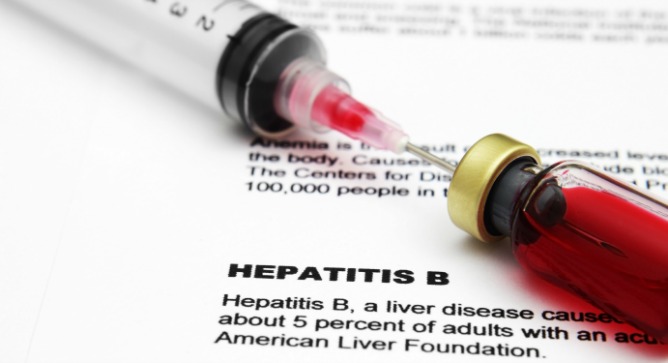Hepatitis B is an infection of the liver. It involves the hepatitis B virus (HBV) which can easily spread from person to person by means of contact with bodily fluids such as blood and semen.
Acute hepatitis B, the kind that is short-lived and usually heals on its own, requires no medical treatment. In other words, it can be managed through home care. On the other hand, chronic hepatitis needs to be treated properly so that the spread of the virus behind it may be suppressed. More importantly, treating the chronic kind is necessary in order to reduce the patient’s risk of developing complications, such as liver failure, liver cancer, and liver cirrhosis — a condition characterized by an irreversible scarring of the liver tissue.
Mode of Transmission
There are many different ways through which HBV can be transmitted to uninfected individuals, leaving them with hepatitis B. One of the most common modes is having unprotected sex with people who are infected with hepatitis B. Anybody who has unprotected sex with multiple partners or with a single person who is infected may end up with hepatitis B.
Hepatitis B may also be transmitted by means of sharing needles through intravenous (IV) or illegal drug use. Similarly, those whose jobs require them to be exposed to human blood are at high risk of having hepatitis B. Basically, living with a person with hepatitis B puts you at risk of getting infected. That’s because HBV can live outside the body of an infected person for at least a week.
It is also possible for a pregnant woman with hepatitis B to infect her child. Experts say that this mode of transmission is very common in endemic areas — places wherein hepatitis B cases are often found or reported. It is also said that it’s common among infants to develop chronic hepatitis B within the first 5 years of their lives upon getting the liver infection from their mothers.
Signs and Symptoms
There are many different signs and symptoms of hepatitis B that usually appear anywhere from 1 to 4 months after getting infected with HBV. They also tend to range from mild to severe.
Abdominal pain and having dark urine are some of the most noticeable symptoms of hepatitis B. Because it is a viral infection, having fever is a common symptom too. A person infected with HBV may also experience painful joints, nausea, vomiting, extreme fatigue and loss of appetite.
Jaundice is one of the telltale signs of hepatitis B. This is a condition characterized by the yellowing not only of the skin, but also the sclera, or more commonly known as the whites of the eyes.
Hepatitis B Complications
Chronic hepatitis B, the kind that lasts for over 6 months, can cause some very serious complications, involving the organ that is infected by the HBV — the liver. One of them is the so-called cirrhosis, a condition wherein the liver tissue ends up permanently scarred. When this happens, the proper functioning of the liver gets impaired.
Liver failure is another problem that may stem from chronic hepatitis B. When this happens, the liver fails to carry out its job any further, thus requiring the patient to undergo liver transplant.
Other complications of chronic hepatitis B include liver cancer, as well as anemia, kidney disease and vasculitis, which is the inflammation of the blood vessels.
Treatments and Diet
The most common treatment for chronic hepatitis B is the intake of antiviral drugs in order to suppress the multiplication of HBV. Through their intake, the rate of liver damage may be significantly slowed down. In some cases, the intake of these drugs cannot fully get rid of HBV. What happens is the replication of the said virus is only suppressed.
Acute hepatitis B, on the other hand, does not really require medical treatment. That’s because it tends to go away on its own after some time. Some of the home remedies for the disease include avoiding exercise and reducing the amount of physical exertion. Gradually increasing physical activity may be done once the patient is already feeling better.
Having small frequent meals is important in order to replenish the patient’s energy as well as to ward off nausea and vomiting, both of which are common hepatitis B symptoms. A diet that’s rich in calories and protein can help speed up the healing process of acute hepatitis B. Drinking plenty of fluids can help a lot too.












